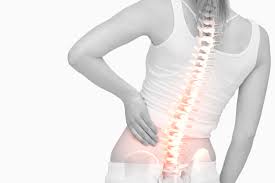Nutrition plays such an important role in our pregnancies and post-partum periods. Breastfeeding requires time…

Unraveling Persistent Pain: Understanding the Brain’s role
Your Nervous System, the body’s alarm system
The human body contains over 400 nerves. 45 miles of nerves travel and connect all body parts like a highway. These nerves have electrical activity traveling through them. The electrical activity goes up or down depending on many factors. Factors that affect our nerves are: stress, movement, nutrition and temperature to name just a few. Our nerves has what is called a threshold. When the electrical activity reaches a point, that message is sent onto the brain for analysis and a reaction.
If you are bitten by a snake, you need to know about it, right? Of course! In this case your alarm system jumps above its resting threshold so that you can manage the situation. Do you need to get help? How can you be more careful next time? Do you need to run, or defend? Once the message is attended to, the system returns to its resting level again. Pain dissolves, life resumes. Unless it doesn’t…
Why the system stays on high alert
Research tells us that in 1 in 4 people the alarm system becomes activated, but does not return to the resting level. Instead, it remains “extra sensitive”. Maintaining pain as a way to protect you.
This sensitivity can impact movement and function considerably. Before you developed pain, your resting level was much less, and it took a lot of activity to reach the threshold and turn on the alarm. Now with extra sensitive nerves, it does not take much activity to set off the alarm.
Previously you might have driven in a car for 2 hours before you felt any soreness. Your brain received the message, and decided to pull over, get up and move around. This allows the nerves to come back to their resting state and for you to get back in the car and drive another 2 hours.
Now that you developed pain, you may only be able to drive for 5 minutes when the alarm system is activated. Your nerves are extra sensitive. It does not take much to reach the alarm level, and you are left thinking something is really wrong.
Another example is your home alarm system. It does not go off with normal day to day activity at your house. Its set to be sensitive to big issues, like a breaking window. Since you have developed pain your alarm system is so sensitive that when a leaf blows by your house, it sets off the alarm. The system needs to be changed to decrease its sensitivity.
We will begin to discuss how to change the system from extra sensitive to a calmer resting state in the next few blog series. The most important thing you can do to calm your system is to learn about how it works, and understand that you can make changes to this system!
We offer a free 15 minute phone consultation with one of our PT specialists to answer questions and see how integrative physical therapy can be beneficial for you. We work to bring an integrative whole person approach to our practice and will work with your on all the lifestyle factors that can help you reach your wellness goals and reduce pain.



